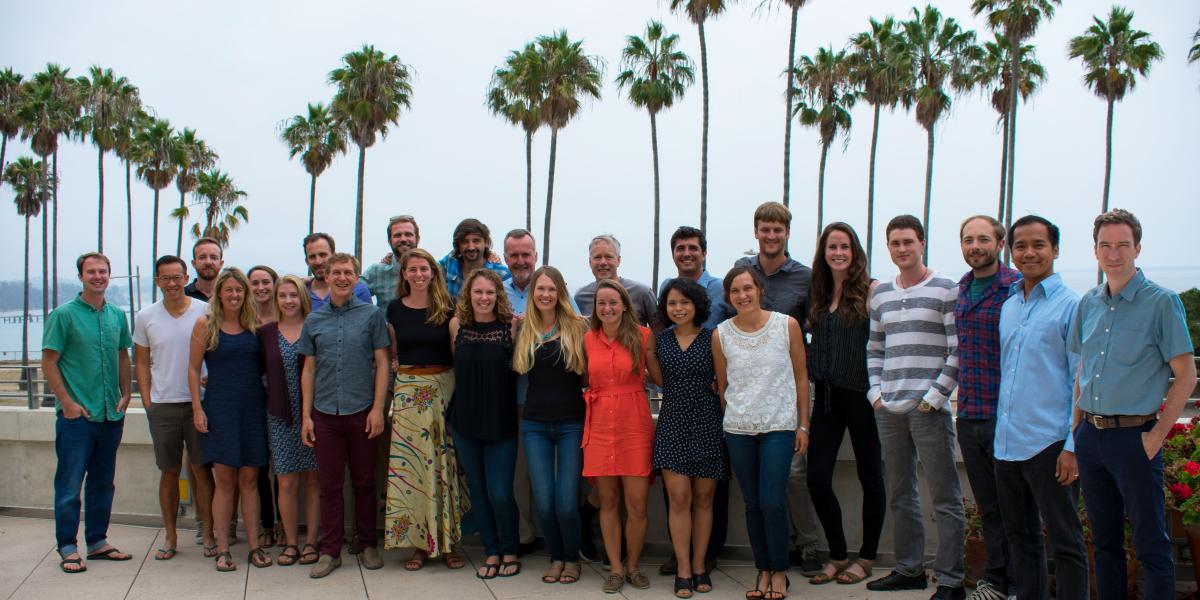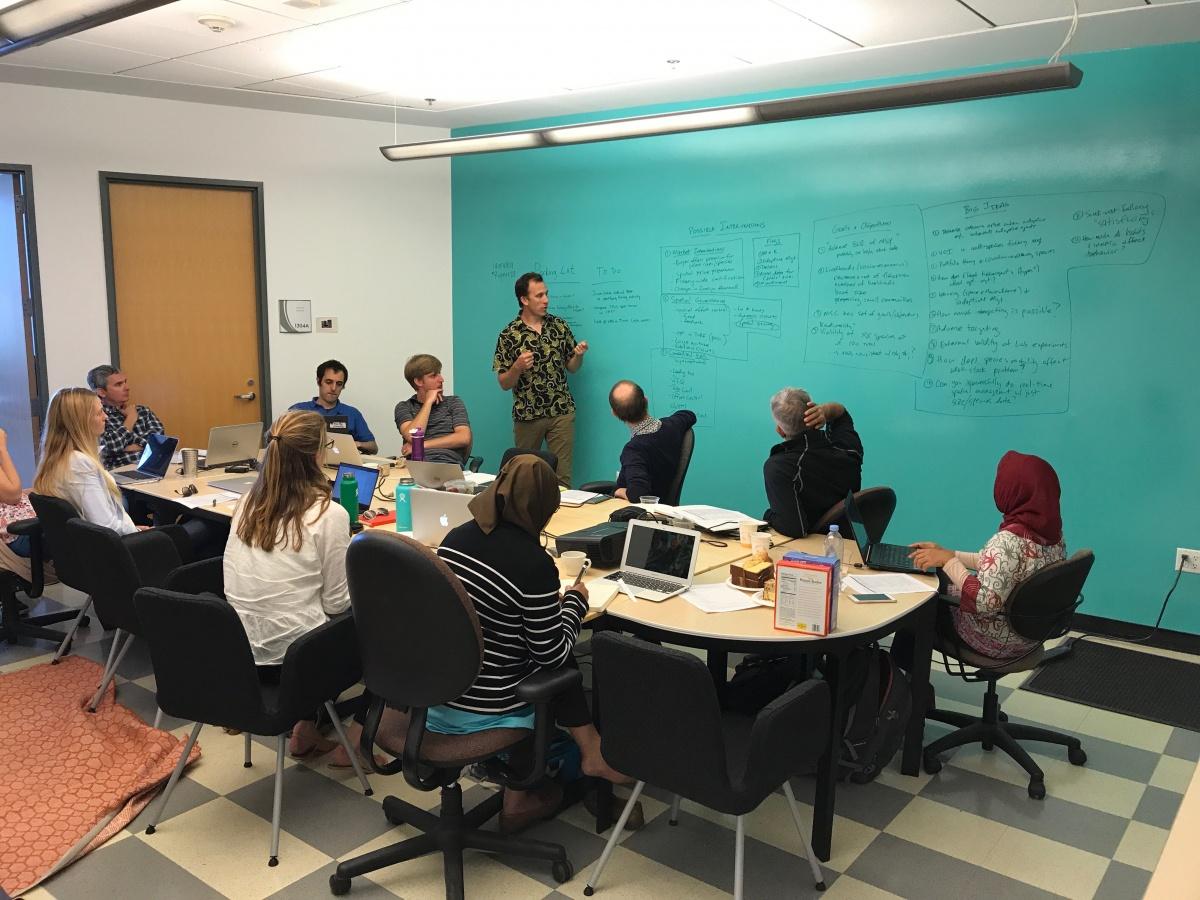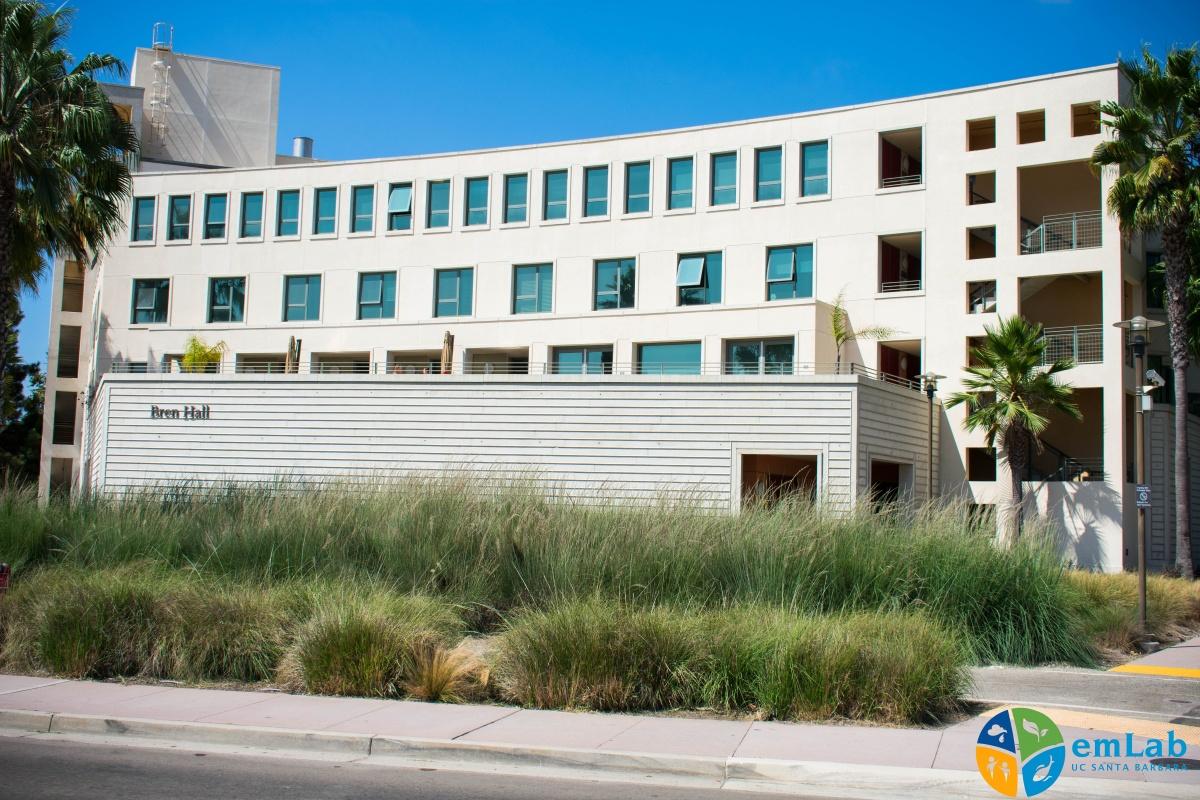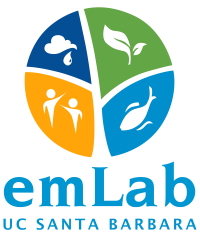
The world faces an unprecedented, uncertain future due to unsustainable resource extraction, climate change, and other environmental challenges. And yet, we live in a time with immense opportunity and are privileged with access to big data and emerging technologies that enable solutions that were unimaginable just decades ago. Addressing these challenges, and harnessing these opportunities, requires a new class of innovative ideas and policies to conserve our planet’s natural resources and guide productive and inclusive economic development. The Environmental Market Solutions Lab (emLab) at the University of California, Santa Barbara is a new “think-and-do tank” that designs market-based approaches to achieve efficient and equitable environmental outcomes. It is based on the principle that more productive and durable solutions arise by deliberately combining academic rigor and real-world pragmatism. We’ve used this approach to tackle ocean challenges for over a decade through the Sustainable Fisheries Group. The new emLab broadens our scope to tackle a wider array of pressing environmental, resource, and energy challenges.

As our team has coalesced over the past 10 years, we’ve learned a lot. On the ground challenges have inspired novel research ideas, and our theoretical insights have broken tough practical blockades. Our applied work has made our science better and more relevant, and in turn, our research has shaped real-world policy and management decisions around the world. We have learned that solutions are not one-size-fits-all, and that collaborating closely with on the ground partners who contribute local knowledge and context is a key to success. We have learned that we are stronger with an interdisciplinary team that encompasses a diversity of perspectives, ideas, cultures, degrees, and experiences. Perhaps most importantly, we have learned that viable and long-lasting solutions require understanding the natural world, and deliberately addressing human behavior and incentives. Thus, we believe that markets and economic incentives can be powerful tools to align economic and conservation objectives, but they must be thoughtfully designed and implemented in order to achieve durable, efficient and equitable outcomes.
As our team has grown and evolved, environmental and socioeconomic challenges have also continued to grow. The health of our oceans and the goods and services they provide are inextricably linked to changes in the climate and land use. And the well-being of many of the world’s most vulnerable and impoverished people is tied in fundamental ways to natural resources and the environment.

The Sustainable Fisheries Group, founded by Bren Professor Chris Costello and Bren School Dean Steve Gaines, has successfully applied its unique approach to ocean challenges for more than a decade. With the launch of emLab, we are leveraging this same approach and expanding our scope to include a Climate & Energy program, led by Bren Professor Kyle Meng and Economics Professor Olivier Deschenes, a Land & Freshwater program, led by Bren Professor Andrew Plantinga, and a People & Poverty program led by Bren Professor Kelsey Jack. Chris Costello will serve as the emLab Research Director and co-lead the Sustainable Fisheries Group (now referred to as the Ocean & Fisheries program) with Darcy Bradley. Michaela Clemence will be the Executive Director of emLab.
Our collaborative and synergistic groups allow us to push the boundaries on long-standing environmental problems across ecosystems and geographies to tackle issues such as food security, human health, sustainable economic growth, renewable energy production and consumption, and environmental justice. Markets and economic incentives provide a common thread to our solutions-oriented approach, and integration of natural science, big data methods, and computational modeling complement our foundation in economics.
With our academically rigorous approach to problem-solving, we are well-positioned to develop and test new solutions to some of the world’s most pressing environmental challenges. We are already working on a diverse range of topics including human rights in the world’s fisheries, wildlife-human interactions in Africa, and designing and evaluating climate policy for environmental justice. We look forward to expanding our partnerships with foundations, NGOs, industry, and government groups around the world. Please contact us to learn more or to get involved in one of our projects.
This is the first in a new series of blogs authored by emLab principals and collaborators. Future blog posts will offer our ‘two cents’ on recent research, current events, and the role environmental markets, economic incentives, and policy design can play in solving environmental problems. To stay up-to-date on emLab research, blog posts, and events, please sign up on our home page.
Note: emLab updated its name to the Environmental Markets Lab in 2021.



